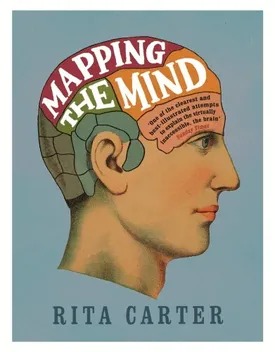Understanding the workings of the human mind has been an endeavor which has intrigued scientists and psychologists for centuries. However, the sheer complexity of being able to probe the depths of such an abstract concept has meant that many have failed to find definitive answers. Rita Carter’s ‘Mapping the Mind’ attempts to navigate these questions in a refreshingly fascinating and comprehensible fashion.
Through a series of case studies and experiments, Carter explains the development of the human mind, from the earliest stages of life to the complexities of adulthood. Carter quickly and effectively dissects each layer of the mind, providing an example of how a particular part of the brain works and discussing the result of any alteration to it. The most interesting part of this book for many readers comes with the introduction of research that discusses how different areas of the mind can be mapped in order to detect any problematic areas or diagnose mental illness.
For example, Carter details how studies were conducted to map out hand movement and how this could be translated into the parts of the brain believed to control and guide motion. She explains that, while the research found a strong correlation between the movements and the brain region, the correlation is not 100% accurate and cannot be used to definitively diagnose problems with the brain.
Carter also delves into cognitive psychology, creating understandable theories and concepts, particularly focused on memory and behavior. She discusses the power of memory and its interaction with the environment that can cause difficulties in recalling certain events. Additionally, she explores theories around ‘social cognition’ which examines our ability to interact and understand other people, as well as potential ‘cognitive biases’ which can lead to false information being transacted from one person to another.
Whilst the bulk of the book is focused on the scientific elements, Carter’s writing is as poetic as it is educational. Her vivid descriptions of personal, everyday experiences such as forgetting where you put your car keys clearly show how such studies are actually integral to life.
Overall, ‘Mapping the Mind’ is an incredibly informative and yet captivating read. From students of psychology interested for an academic insight into the complexities of the mind to a general readership looking for a more local understanding, there is a lot to enjoy from this book. Carter skilfully explains intricate research in a way which is both engaging and easily digestible but also stands up to scientific scrutiny.

